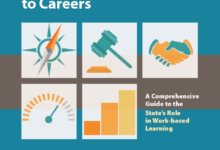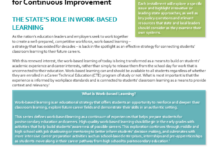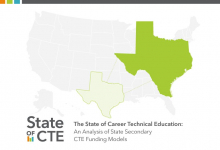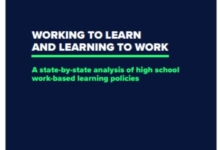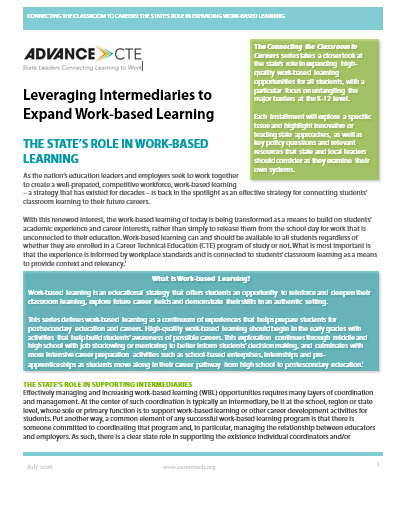Work-based learning is an educational strategy that offers students an opportunity to reinforce and deepen their classroom learning, explore future career fields and demonstrate their skills in an authentic setting. Managing work-based learning requires layers of coordination, which is typically done by an individual or organizational intermediary. This document, part of Advance CTE’s “Connecting the Classroom to Careers” series, provides guidance and examples of how states can support intermediaries to expand work-based learning.
This brief explores the role of intermediaries at the school, region and state levels, who coordinate between educators and employers to develop critical work-based learning opportunities for students. The brief provides an in-depth look at policies in South Carolina — where an intermediary called Apprenticeship Carolina works to connect students with work-based learning opportunities — and in Georgia — which supports intermediaries through dedicated funding streams, technical assistance and infrastructure.
Previous briefs in this series have covered Setting a Statewide Vision for Work-based Learning, Removing Legal Barriers around Work-based Learning and Measuring Work-based Learning for Continuous Improvement.

